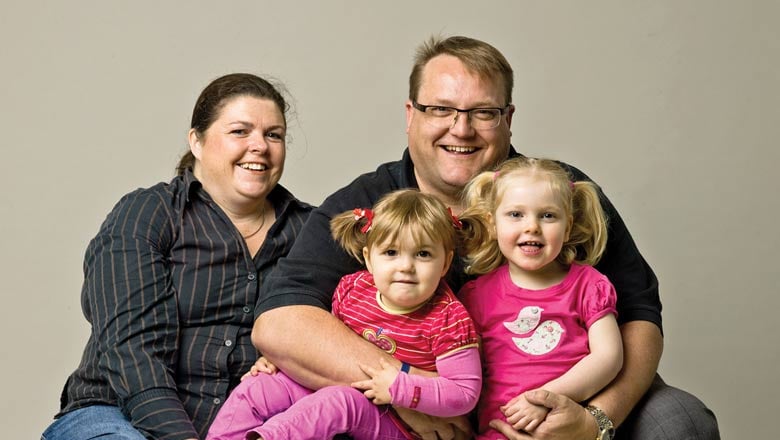Search
Research
Towards precision cancer medicine for Aboriginal and Torres Strait Islander cancer health equityDelivering cancer control at scale for Aboriginal and Torres Strait Islander communities is a national priority that requires Aboriginal and Torres Strait Islander leadership and codesign, as well as significant involvement of the Aboriginal community-controlled health sector. The unique genomic variation observed among Aboriginal and Torres Strait Islander peoples may have implications for standard and precision medicine.
Research
Process evaluation of a randomised controlled trial intervention designed to improve rehabilitation services for Aboriginal Australians after brain injury: the Healing Right Way TrialHealing Right Way (HRW) aimed to improve health outcomes for Aboriginal Australians with stroke or traumatic brain injury by facilitating system-level access to culturally secure rehabilitation services. Using a stepped-wedge randomised controlled trial design, a two-pronged intervention was introduced in four rural and four urban hospitals, comprising cultural security training for staff and training/employment of Aboriginal Brain Injury Coordinators to support Aboriginal patients for 6-months post-injury.
Research
The Future Healthy Countdown 2030 consensus statement: core policy actions and measures to achieve improvements in the health and wellbeing of children, young people and future generationsThis consensus statement recommends eight high-level trackable policy actions most likely to significantly improve health and wellbeing for children and young people by 2030. These policy actions include an overarching policy action and span seven interconnected domains that need to be adequately resourced for every young person to thrive: Material basics; Valued, loved and safe; Positive sense of identity and culture; Learning and employment pathways; Healthy; Participating; and Environments and sustainable futures.
Research
A systematic review of the thoughts and feelings that are associated with suicidal behaviours in Aboriginal and Torres Strait Islander young peoplesAboriginal and Torres Strait Islander Peoples are custodians of one of the oldest living societies; however, the continued impact of colonisation has led to profound trauma and loss which has spanned generations.

Guide our sibling research!
Research
Genomic characterization of clinically significant blood group variants in Aboriginal AustraliansHematological disorders are often treated with blood transfusions. Many blood group antigens and variants are population-specific, and for patients with rare blood types, extensive donor screening is required to find suitable matches for transfusion. There is a scarcity of knowledge regarding blood group variants in Aboriginal Australian populations, despite a higher need for transfusion due to the higher prevalence of renal diseases and anemia.
We want to hear from siblings living outside of Australian cities!
Research
The application of environmental health assessment strategies to detect Streptococcus pyogenes in Kimberley school classroomsChildren spend almost one-third of their waking hours at school. Streptococcus pyogenes (Strep A) is a common childhood bacterial infection that can progress to causing serious disease. We aimed to detect Strep A in classrooms by using environmental settle plates and swabbing of high-touch surfaces in two remote schools in the Kimberley, Western Australia.
Research
Which reference equation should we use for interpreting spirometry values for First Nations Australians? A cross-sectional studyTo evaluate the suitability of the Global Lung Function Initiative (GLI)-2012 other/mixed and GLI-2022 global reference equations for evaluating the respiratory capacity of First Nations Australians.
Research
Rheumatic heart disease in Indigenous young peoplesIndigenous children and young peoples live with an inequitable burden of acute rheumatic fever and rheumatic heart disease. In this Review, we focus on the epidemiological burden and lived experience of these conditions for Indigenous young peoples in Australia, New Zealand, and Canada. We outline the direct and indirect drivers of rheumatic heart disease risk and their mitigation.
Research
An update on the burden of group A streptococcal diseases in Australia and vaccine developmentAsha Jeffrey Bowen Cannon BA MBBS DCH FRACP PhD GAICD FAHMS OAM BSc(Hons) BBus PhD Head, Healthy Skin and ARF Prevention Health Economist
Research
Measuring social and emotional wellbeing in aboriginal youth using strong souls: A rasch measurement approachCurrently, there are few robustly evaluated social and emotional wellbeing (SEWB) measures available for use with Aboriginal youth in research, policy, and practice.

News & Events
Global research for rare disorderThe Kids Research Institute Australia researchers set out on a worldwide search to find out all they could about Rett syndrome, establishing databases and creating awareness.
Research
Decline in gross motor skills in adult Rett syndrome; results from a Danish longitudinal studyLongevity of individuals with neurodevelopmental diseases as Rett syndrome (RTT) has increased and many reach adulthood and old age. There is therefore a need to increase knowledge about the course of RTT in adults in order to improve medical care management and quality of life.
Research
qPCR assay optimisation for a clinical study comparing oral health risk in Rett syndromeThis study aimed to validate qPCR assays for specific microbiota, for use on dental plaque samples stored on Whatman FTA cards to compare relative oral health risk in Rett syndrome.
Research
Genotype and sleep independently predict mental health in Rett syndrome: An observational studyRett syndrome is a genetically caused neurodevelopmental disorder associated with severe impairments and complex comorbidities. This study examined predictors of anxiety and depression in Rett syndrome, including genotype.
Research
Clinical guidelines for management of bone health in rett syndrome based on expert consensus and available evidenceA clinically significant history of fracture in combination with low bone densitometry findings is necessary for a diagnosis of osteoporosis in Rett Syndrome
Research
Rett syndrome: Establishing a novel outcome measure for walking activity in an era of clinical trials for rare disordersRett syndrome is a pervasive neurological disorder with impaired gait as one criterion.

